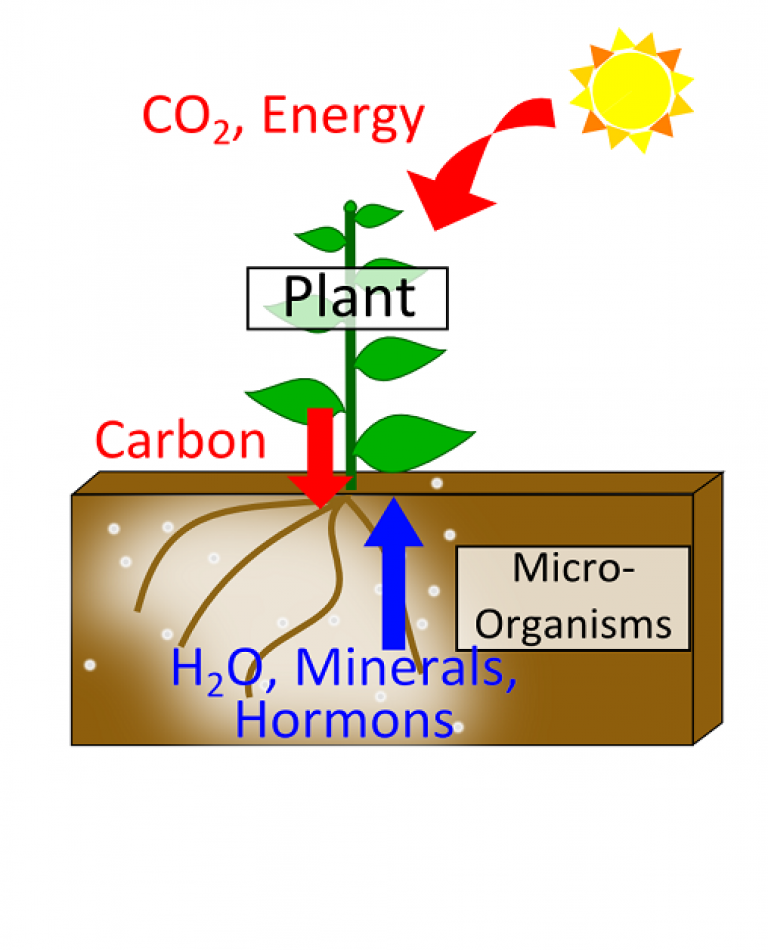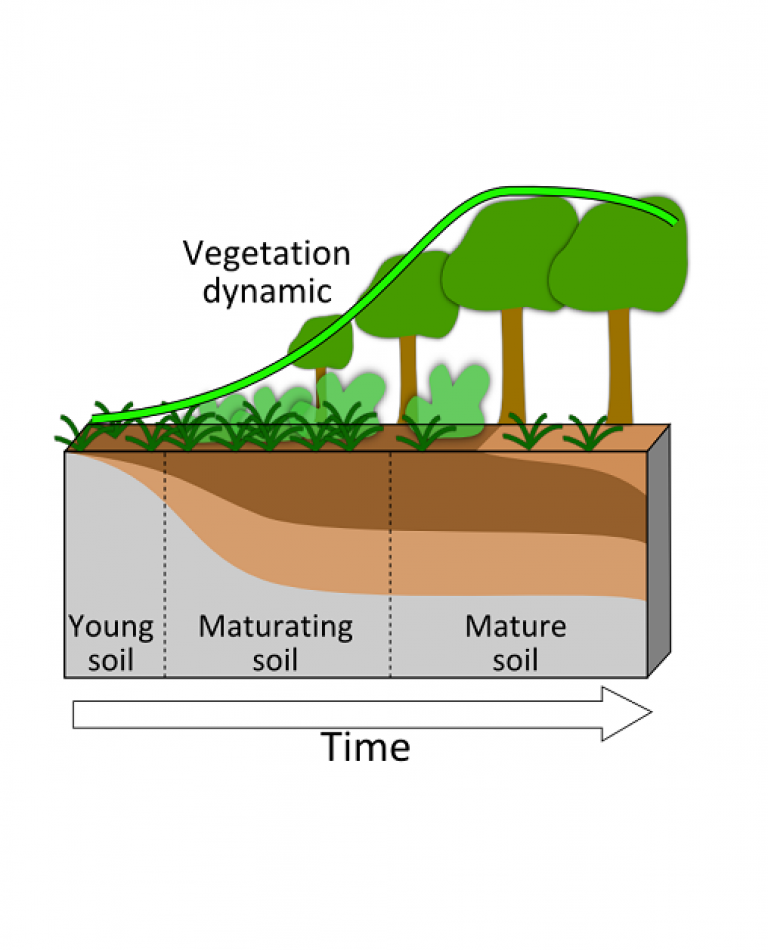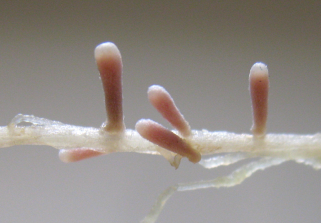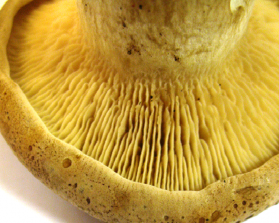Importance of microorganisms in the ecosystem
Microorganisms represent a large amount of biomass and biodiversity in the soil. In a handful of soil, microorganisms can achieve an average number of 8 to 10 billion and over 10 000 species. They play major roles in ecosystems, particularly in the rhizosphere (narrow region of soil that is directly influenced by root secretions and associated soil microorganism):
- mineral fertility increase,
- water stress decrease,
- growth stimulation,
- structuring and soil stabilization,
- protection against pathogens,
- natural or synthetic polymers degradation...
In a handful of soil, microorganisms can achieve an average number of 8 and 10 billion and over 10 000 species !
Rhizosphere engineering and controlled inoculation
In order to enhance the ecosystem services provided by micro-organisms, Valorhiz offers an innovative approach using rhizosphere biotechnology coupled with expertise in hydrostructural and physicochemical soil functioning. Valorhiz provides biological solutions based on selected microorganisms for controlled inoculations of soil or crops with inefficient microbiological component.
This is the case of disturbed soils (quarries), rebuilt soils (slope), agricultural soils (intensive practices) and impacted soils (heavy metals, PAH, ...).
The aim of this controlled inoculation is to maximize the efficiency of microorganisms according to targeted ecological functions needed for revegetation of natural or disturbed soils, the valorization of impacted soils and the optimization of agricultural crops profitability under sustainable practices.

Beneficial effects of soil microorganisms

Controlled microbial inoculation : towards faster functionalization of ecosystem



